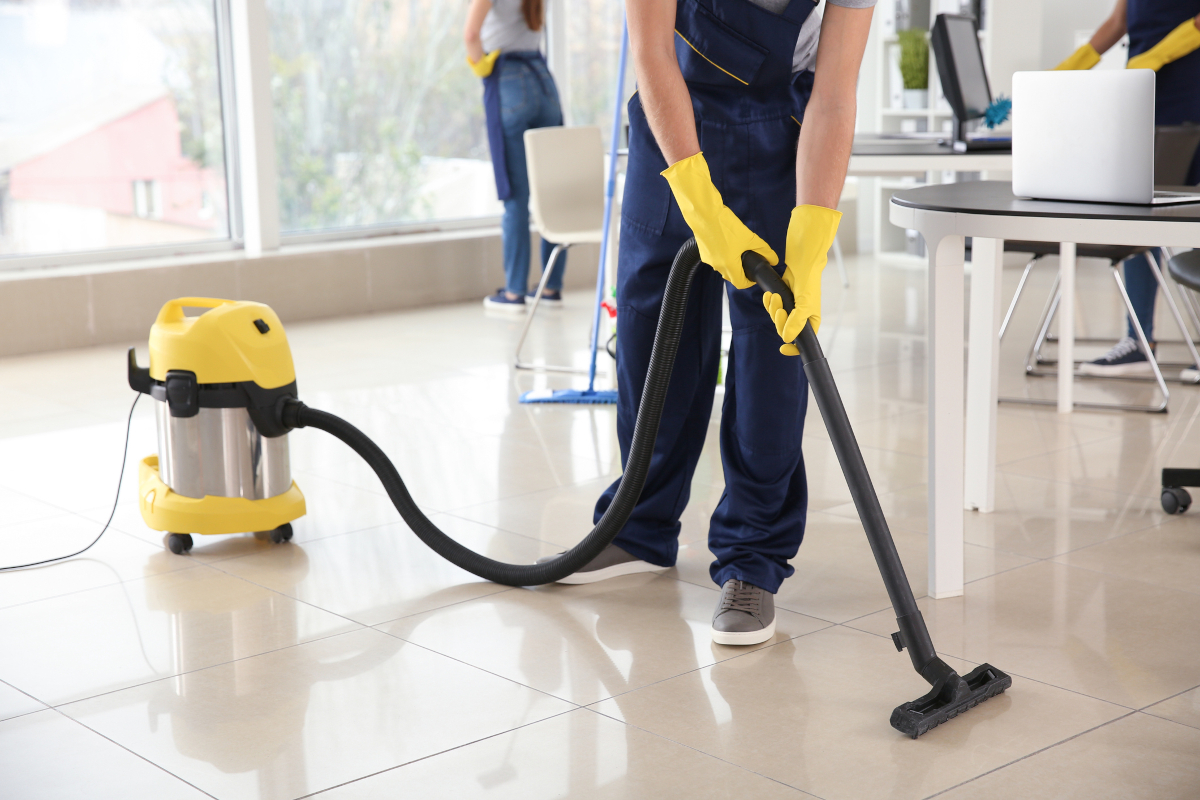Starting and running a business is never easy. Every industry experiences disruptions that lead to industry declines and times of difficulty which lead to failing businesses.
However, those that make it to the other side often experience incredible growth as market forces swing in a positive direction. But how can you give yourself the best chance to weather the declines and enjoy business growth?
The answer is to choose a resilient, low-risk business in the most stable industries. In saying that, business failure is still a common event so it’s a good idea to learn the reasons behind failure and how to avoid them.
To help you start off on the right foot, though, this article will list the most resilient businesses and industries in Australia and why they’re a suitable choice if you want to reduce your potential business failure rate.
To give you a sneak peek, we’ll be covering the following businesses and industries with low failure rates:
- Laundromats.
- Legal services.
- Pet services and products.
- Pest control.
- Cleaning services.
- Solar panel installation and maintenance.
- Specialised trades (ie. electrician, HVAC, etc.)
- Funeral services.
- Accounting and tax services.
- Digital marketing agencies.
10 businesses that never fail
When researching this list of businesses, we wanted to find businesses that are either in stable, proven industries, have strong barriers to entry, are services in high demand or are a necessity in Australia.
Here are our top 10 fundamental industries to consider if you want to own businesses with the lowest failure rates:
1. Laundromats

Laundromats are an excellent fail-proof business idea that fulfils a basic need for consumers as everyone requires clean clothes on a regular basis.
Due to this, these businesses tend to generate consistent income as customers return to your store for weekly washing. Additionally, laundromats are passive streams of income since they offer self-service options that can enable you to scale to multiple stores. All you have to do is take care of maintenance.
One thing to note about laundromats is that location is vital. The best locations for laundromats include urban areas, particularly those with student accommodation, or low-income areas where using a laundry service is a more economical choice.
While starting a laundromat from scratch is an option, buying an existing laundromat can take the guesswork out of choosing the right location as you can see how the business has performed previously.
Although it’s a relatively stable industry, the laundromat market is still expected to grow by a compound average growth rate (CAGR) of 3.01% between 2023 and 2028.
2. Legal services

Legal services are a service that everyone needs, making it one of the safest businesses you can own in Australia.
While most people don’t use these services regularly, when they run into legal issues, such as disputes, fraud, or accidents, the first thing they do is contact a lawyer. Additionally, many law firms specialise in a particular area of law, like criminal law.
This helps them maintain their competitive edge and ensures they can better service customers, leading to long-term relationships and a loyal client base—particularly when it comes to legal services for companies.
While we weren’t able to find estimated growth metrics for the industry, it has grown by a CAGR of 1.7% between 2017 and 2022. During that time, market consumption volume also increased by a CAGR of 4.4%. This is a strong signal for continued growth in an already in-demand industry.
3. Pet services and products

Australians absolutely adore pets with just under half of all households owning a dog or cat. In fact, most households own more than one pet!
Many of these people consider pets their family members, meaning they’re open to spending money on high-quality pet food and products as well as various services such as grooming, healthcare and more—regardless of the economic environment.
Once pet owners settle on a provider for pet services and products they tend to stick with them as long as the customer (and pet) are happy.
When it comes to industry growth, the pet food sector is expected to increase by a 2.7% CAGR until 2028 while the pet grooming sector is estimated to grow by a 9% CAGR until 2027.
4. Pest control

Pest control is another necessary service that keeps insects and other unwanted critters away from commercial and residential properties.
Since pest control often involves working with dangerous chemicals, anyone offering the services requires some level of expertise which increases the barrier to entry. Additionally, some people may view pest control as a dirty or unpleasant job (especially if they don’t like insects) which further reduces competition.
Pest control also tends to provide a consistent level of revenue as most buildings require regular servicing regardless of how the economy is performing, making it one of the lowest-risk businesses around.
While the industry has been around for a long time, experts estimate that the industry will see a 5% CAGR until 2027, signalling strong growth.
5. Cleaning services

Malls, offices, schools, homes and every other building need someone to clean them.
Some rely on employees while many turn to external commercial cleaning companies instead which often results in long-term contracts if the service is good. This provides consistent income which can make it easier to survive downturns or scale your business when you want it to grow.
The industry also allows you to specialise your services to increase your competitive edge. For example, offering industrial cleaning for hazardous chemicals.
However, even for basic household cleaning, the market is expected to grow by a 3.7% CAGR until 2028.
If you're thinking of starting a cleaning business, check out our helpful guide on how to start one.
6. Solar panel installation and maintenance

Solar panels are a staple in many Australian suburbs, but there are still plenty of buildings that will need them installed during the nation’s push to net-zero emissions. Additionally, the government continues to offer consumers rebates for installing solar panels, further increasing demand.
Besides that, solar panels also make financial sense for the buyer since they significantly reduce their electrical bills as well as being better for the environment, making solar panel installation potentially one of the most profitable industries in the future.
This demand has experts forecasting that Australia will almost double its current installed solar capacity over the next five years which translates to significant industry growth.
7. Specialised trades

Specialised trade services like plumbing, electrical work, HVAC and more are businesses that will always be in demand as they’re essential for residential and commercial properties. Additionally, many of the services are recurring which provides consistent revenue—such as HVAC maintenance.
Offering trade services like these requires licensing and certification which significantly reduces the amount of competition in the industry, lowering the failure rate of the business.
To give you an idea of specialised trade growth in Australia, the construction industry is expected to grow at a CAGR of 5.5% between 2023 and 2028.
8. Funeral services

Funerals are a necessary and culturally significant part of life. This ensures a constant demand for funeral services as death is an inevitable part of life.
While some funeral companies offer basic services, others go above and beyond to support grieving families and foster long-term relationships. This results in some funeral homes serving multiple generations of families which demonstrates the business’ low failure potential.
Additionally, Australia’s elderly population (over 65s) is growing quickly with experts predicting it will increase by 2.4 million people by 2041. While people are living longer, the baby boomer generation is significantly larger than previous generations, resulting in more demand for funeral services.
9. Accounting and tax services

Good accountants are a must-have for businesses as they help them track their cash flows while advising them on ways they can optimise their finances for business growth.
While large companies often have in-house accountants, many small and medium enterprises outsource these vital services to external accounting and tax companies. This provides consistent revenue as businesses are constantly having to monitor and analyse their financial standing. Additionally, filing taxes is legally required, making it arguably the most stable industry on this list alongside legal services.
The industry also enjoys significant barriers to entry as accountants require a degree as well as further certification to legally provide accounting services.
As a proxy for industry growth, the Australian government estimates a 9.2% growth in accounting jobs between 2021 and 2026.
10. Digital marketing agencies

In our digital age, being able to run effective digital marketing is a must for generating consistent demand.
The problem is that the industry is always changing. Google updates their search engine policies, Facebook changes its algorithm and X (Twitter) is going through its own overhaul. It’s difficult for entrepreneurs to keep up with all this while running their own company which is why they turn to digital marketing agencies.
Additionally, if you can consistently run successful campaigns, clients tend to stick with you for a long time as you’re making them money.
Digital marketing agencies are also true global businesses, meaning you can easily service a client in the US, Australia or somewhere else without changing how you operate, unlocking millions of potential customers.
Overall, the global digital marketing industry is expected to grow at a CAGR of 13.1% from 2023 - 2028.
Helpful FAQs
What businesses are least likely to fail?
Businesses that are least likely to fail are those that are in historically stable industries, have higher barriers to entry or enjoy stable consumer demand.
For example:
- Laundromats.
- Legal services.
- Pet services and products.
- Pest control.
- Cleaning services.
- Solar panel installation and maintenance.
- Specialised trades (ie. electrician, HVAC, etc.)
- Funeral services.
- Accounting and tax services.
- Digital marketing agencies.
What are the top five reasons businesses fail?
The top five reasons that businesses fail include:
- Not understanding or aligning with consumer preferences.
- Poor economic conditions, such as inflationary environments or recessions.
- Failure to effectively compete with businesses who have the same target market.
- Poor product or service quality.
- Ineffective management practices—for example, not adapting to changing market conditions.
What industries will never go out of business?
While it’s difficult to predict the future, the following industries will likely never go out of business as they serve important human needs:
- Healthcare.
- Food and agriculture.
- Education.
- Finance and banking.
- Legal services.
- Real estate.
- Information technology.
- Waste management.
Keep in mind that although these industries likely won’t go out of business, companies within them will still need to adapt to new innovations and industry changes to succeed.
Bottom line: businesses that never fail

Businesses that never fail all share one thing in common, they have some sort of edge that reduces business failure rate in the industry.
Some are in stable, proven industries that don’t experience significant downturns while others are a necessity or have strong barriers to entry that reduce the amount of competition.
But this doesn’t mean that they’re guaranteed to succeed. You still need to craft a thorough business plan, adapt and cater to changing consumer preferences and industry shifts to grow your business, and ultimately reach your desired level of success.
To help you do just that, you can read our latest articles on growing a business and improving company cash flow in Australia.
Then once you’re ready to take the leap into business ownership, browse through thousands of businesses with low failure rates for sale on our website.
Good luck!
